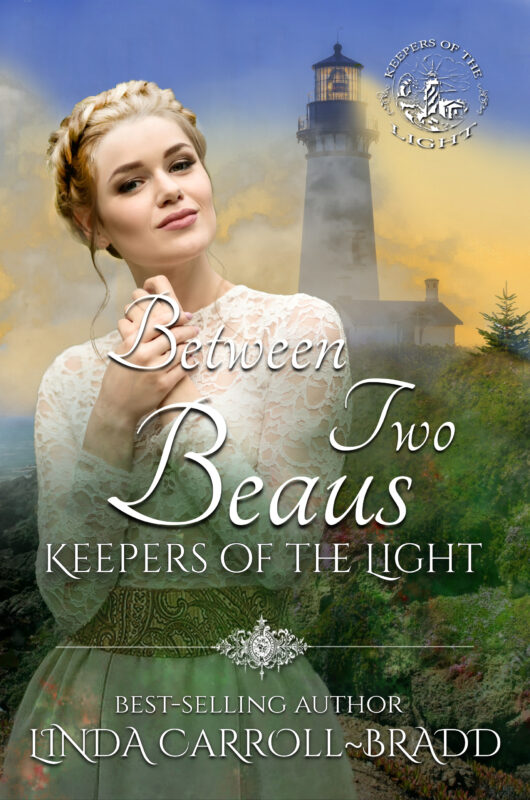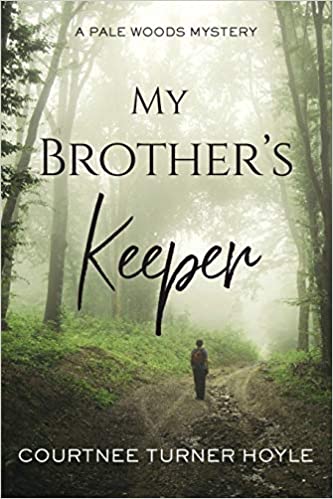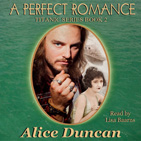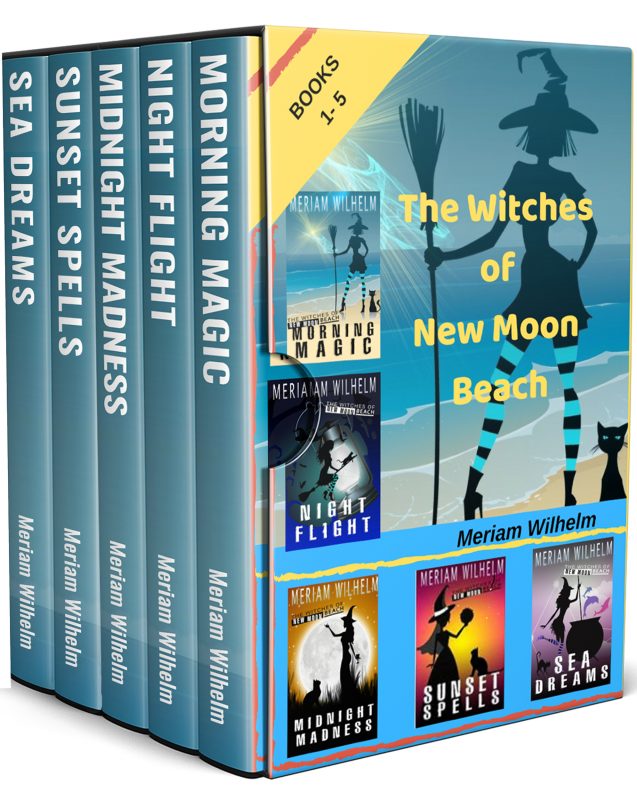Featured Author: H. O. Charles
September 7, 2021 by H. O. Charles in category Art, Cover, Design by H. O. Charles, Featured Author of the Month tagged as Best Selling author, fantasy, Featured author, HO Charles, The Fireblade Array
H. O. Charles Featured Author for September
H.O. Charles is an Amazon Top 100 Sci-Fi and Fantasy author of The Fireblade Array – a #2 best-selling series across Kindle, iBooks and B&N Nook in the Sci-Fi and Fantasy categories (#1 would just be showing off, right?) Okay, it did hit #1 in Epic Fantasy in all those places . . . BUT DON’T TELL ANYONE because no one likes a bragger.
Though born in Northern England, Charles now resides in a white house in Sussex and sounds like a southerner. Charles has spent many years at various academic institutions, and cut short writing a PhD in favour of writing about swords and sorcery instead. Hobbies include being in the sea, being by the sea and eating things that come out of the sea. Walks with a very naughty rough collie puppy also take up much of Charles’ time.
Social Media Links
Website
Facebook
Twitter
Goodreads
Books by H. O. Charles
Labor Day Replay
September 5, 2021 by Tracy Reed in category WritingHappy September and Happy Labor Day. I hope everyone is doing well and staying safe. I apologize for replaying a post, but I’m on a deadline with The Good Girl Part Four. Interesting thing about this post is it talks about the series I’m working on…The Good GIrl. I’m also working on a couple of things I hope to share with you next month. Au revoir.
OOPS…I ALMOST DID IT AGAIN (September 2020)
Happy September. I’m pretty sure you already know what I’m going to say…I can’t believe we are nineteen days away from the first day of fall.
Hope this makes you laugh. I was all set to talk about my experience with the review program at Hidden Gems. It wasn’t until I found my misplaced copy of my August post, did I realize that’s what I talked about last month. I had written three hundred plus words which I had to scrap. Now I’m stuck with either rehashing an old post or writing something new. I’ve opted for the latter, but find myself clueless.
The crazy that is going on in the world has sort of zapped my creative energy. I never expected I would still be working on my book. A few weeks into 2020, I had a writing plan or production schedule. I also inflicted a little self pressure to complete and publish it by a certain date.
Now that we are almost six months into the pandemic and shelter in place order, I find myself dragging. I love the subject of my book, except for the hole I think I plugged. It’s challenging continuing a series. Now that the book is complete and I’m doing another read- thru, I find myself referring to the other two books, when all I had to do was keep a series bible. Add series bibles to the long list of things I need to do.
Week before last, I reluctantly emailed my editor asking for a new editing slot. I’m pretty sure that was a given seeing I’d already missed the date.
This has been a challenge moving on to the next project. In my mind I’m already writing the next book, but that will have to wait until this one heads to the editor.
I really think what’s happening is I’m not sure this is the best time [or year] to release book with an alpha billionaire. Or is it? Maybe I’m overthinking that readers don’t want to read. Maybe readers really want to read romance where there are no health boundaries [i.e., Covid 19]? Maybe they want to escape to a world where things were like they used to be. I feel confident in admitting I haven’t got a clue how to write a romance with masks and gloves. Social distancing would be easy. That would involve traveling back to a time where manners and courtship were the basis for romance.
I believe it’s time for me to get out of my head and get my butt in the chair and write. I need to tell stories that make people feel good. So they can escape the crazy around them and fantasize about what was and how it might possibly be in the future.
Here’s my new plan as I head in to the fourth quarter. Send The Good Girl Part Trois to the editor by the end of this month. The second goal is to put the book up for pre-order on all platform except Amazon. This is a plan I can still live with.
Stay safe and see you next month,
Bloodroot Book Tour with Excerpt
September 4, 2021 by marianne h donley in category Apples & Oranges by Marianne H. Donley, Rabt Book Tours tagged as Booktour, Daniel Meier, Excerpts, historical fiction, RABTBookTours
England, 1609. Matthew did not trust his friend, Richard’s stories of Paradise in the Jamestown settlement, but nothing could have equipped him for the privation and terror that awaited him in this savage land.
Once ashore in the fledgling settlement, Matthew experiences the unimaginable beauty of this pristine land and learns the meaning of hope, but it all turns into a nightmare as gold mania infests the community and Indians become an increasing threat. The nightmare only gets worse as the harsh winter brings on “the starving time” and all the grizzly horrors of a desperate and dying community that come with it.
Driven to the depths of despair by the guilt of his sins against Richard and his lust for that man’s wife, Matthew seeks death, but instead finds hope in the most unexpected of places, with the Powatan Indians.
In this compelling and extensively researched historical novel, the reader is transported into a little-known time in early America where he is asked to explore the real meanings of loyalty, faith, and freedom.
About The Author
A retired Aviation Safety Inspector for the FAA, Daniel V. Meier, Jr. has always had a passion for writing. During his college years, he studied History at the University of North Carolina, Wilmington (UNCW) and American Literature at The University of Maryland Graduate School. In 1980 he published an action/thriller with Leisure Books under the pen name of Vince Daniels.
He also worked briefly for the Washington Business Journal as a journalist and has been a contributing writer/editor for several aviation magazines. In addition to Bloodroot, he is the author of the award-winning historical novel, The Dung Beetles of Liberia that was released in September 2019 and the highly acclaimed literary novel, No Birds Sing Here in April 2021.
Contact Links
Purchase Links
Excerpt
Bloodroot
Daniel Meier
Chapter 8
MONOCANS
The night slowly yielded, as it always does, to happy daylight. Never was I so happy to see it come. The dark, strange shapes slowly became bushes, or the trunks of trees covered with vines, or they disappeared altogether—mere night shadows. All manner of birds awoke and greeted the day with their particular songs. The sun warmed and dried the ground which yielded a sweet, wild scent.
The Lieutenant himself came to fetch us from our post, saying to me that we were less than a day’s march from the land of the Saponi, and there we might expect to bargain for fresh victuals and peaceful relations. So, after breakfasting on more dried beef, we continued our march along King James River, going further into the interior of this strange land.
The men had begun to grumble about the value of our undertaking and openly doubting that any of us would return alive. Lieutenant Webster did his best to appease them but, as the day wore on, their complaints grew stronger. The Lieutenant ordered a halt. He reckoned that we were well out of the land of the Monacans and ordered camp to be made on a height next to the river. There were many hours of daylight left, and he ordered our best marksmen, of which I was not one, to go into the woods and kill the fattest deer they could find.
The Lieutenant himself went in search for whatever fruits the land would provide. He soon returned with his hat and shirt full of berries which looked similar to English strawberries but with a sweeter, juicer taste. We heard a musket report not too far off and, in less than half an hour the marksmen returned, bearing a large male deer strung on a carrying pole.
Every man in the camp, including myself, was most happy over the prospect of fresh meat. We set about dressing the deer and constructing several roasting pits. In a short while we had the best cuts of the venison sizzling over glowing wood coals. The unusable parts of the animal we buried away from our campsite. To clean ourselves of the blood and animal fat, we bathed and frolicked, like schoolboys, in the running cool waters of the river.
When the meat was done, we sat around the fire, naked as Indians except for a loincloth which the Lieutenant demanded that we wear. We feasted on well cooked meat until we could not force another mouthful down. We then lay by the fires, gorged as the most gluttonous of Romans, and instantly fell asleep. I hardly gave a thought to whatever Indians might be lurking about.
Vintage 1960 TV Theme Music
September 3, 2021 by Janet Elizabeth Lynn and Will Zeilinger in category Partners in Crime by Janet Elizabeth Lynn & Will Zeilinger, Starting a Novel Series with a Partner by E. J. Williams tagged as 1960s Research, E.J. Williams, Janet Elizabeth Lynn, Research for Writers, Will Zeilinger, writing partners
The 1960s began a new era of television programs. Broadcasting transitioned from black/white to color. Lighthearted sitcoms/comedies were the most-watched shows. But as the decade progressed people became socially conscious. Memorable theme songs/ lyrics defined the shows.
Here are just a few of those memorable theme songs in alphabetical order:

Hogan’s Hero’s
1965 to 1971
CBS
by Jerry Fielding

I Dream of Jeanie
1965-1970
CBS
by Hugo Montenegro

Mission Impossible
1966-1971
CBS
by Lalo Schifrin

My Three Sons
1960 to 1970
ABC
by Frank De Vo

The Addams Family
1964 to 1966
ABC
by Vic Mizzy

The Andy Griffith Show
1960 to 1968
CBS
by Earle Hagen

The Avengers
1966 to 1969
CBS
by Laurie Johnson

The Beverly Hillbillies
1962-1971
CBS
by Paul Henning

The Courtship of Eddies Father
1969 to 1972
ABC
by Harry Nilsson

The Twilight Zone
1959 to1964
CBS
by Bernard Herrmann
Some of Janet and Will’s Books
Author E.J. Williams–Marriage, Mystery and Other Stuff!!
September 2, 2021 by Jann Ryan in category Jann says . . . tagged as mysteries, The Skylar Drake Murder Mystery Series Published authors, Janet Elizabeth Lynn and Will Zeilinger wrote individually until they teamed up and wrote the five book Skylar Drake Murder Mystery series. Janet has published seven mystery novels and Will has three in print, plus two short stories. Their world travels have sparked several ideas for murder, crime and thriller stories. This creative couple has been married for 49 years.
Published authors, Janet Elizabeth Lynn and Will Zeilinger wrote individually until they teamed up and wrote the five book Skylar Drake Murder Mystery series. Janet has published seven mystery novels and Will has three in print, plus two short stories. Their world travels have sparked several ideas for murder, crime and thriller stories. This creative couple has been married for 49 years.
For their new International Crime File series, they are writing as E.J. Williams. The first novel is titled STONE PUB: an Exercise in Deception.
We’re here today with the mystery writing dual who write under the name of E. J. Williams. We’ll be talking about picking it up fresh after a delay, writing as a couple and other stuff.
Janet and Will:
We are a married couple who have written the five book Skylar Drake Mystery Series together and yes…we are still married. After finishing the series, we planned another series of international mystery thrillers. Unfortunately, we’ve had several medical issues occur during 2020-21 for both of us. Hence there was an eighteen-month period where we couldn’t work on our new book. After this long absence in writing we’ve decided to try and “get back into the saddle again.”

Jann: What are the positive and negatives of writing as a couple?
Will:
Positives: collaboration. Having a sounding board for your ideas. Coming up with fresh new ideas (two heads are better than one).
Negatives: Difficult to take a new idea and run with it. You must always check in with co-writer first. A couple’s vision is going to be different than an individual’s vision.
Janet:
 I find it wonderful to share the ideas and brainstorming session with someone. Before starting our first book, Slivers of Glass together, we made a rule that we check our egos at the door before we do anything with the book we are writing. The most difficulty we have is trying to schedule meetings around two hectic and existing schedules. We manage but it can be a pain.
I find it wonderful to share the ideas and brainstorming session with someone. Before starting our first book, Slivers of Glass together, we made a rule that we check our egos at the door before we do anything with the book we are writing. The most difficulty we have is trying to schedule meetings around two hectic and existing schedules. We manage but it can be a pain.
Jann: Do you share the editing and publication process for your books.
Will:
Yes. We share both the editing and publication processes for all our books, including cover design and back cover blurbs.
Janet:
We split our “duties” according to our skills. I like to outline and he is a “panster”. So I outline the story, he adds to the outline then we start writing any of our Skylar Drake books. With editing we read the manuscript to each other 3-4 times before sending it to the editor. Regarding publishing, Will is the expert in formatting and publishing so he is in charge of that. I take care of Public Relations.
Jann: What if you hate what you wrote before?
Will:
Personally, I save everything. Even if I can’t stand what I wrote previously, there will always be something in it that can be used in the future. If you are talking about previous works, I don’t shine a spotlight on the ones I don’t like…but someone will like it. Writing is an art and art is subjective. Never apologize for your work. Writing is a creative process and everything will not be a masterpiece.
Janet:
Someone once said, “You can’t edit a blank page”. And I have to admit my first drafts are embarrassing when I read through them. But they are not supposed to be pristine. All writers will tell you writing a book, short story, etc. is a process.
Jann: Do you ever chuck what you did and just start a new project?
Will:
No, but I have begun some short stories or outlines for a novel after a few lines that just did NOT work. Yes. In that case, I crumple up the paper and start over.
Janet:
I have never thrown away anything I have written. If it doesn’t work after two tries, then I remove it from the manuscript and keep it. I can’t tell you how many times I needed scene and looked through my “dump” folder and found the perfect scene.
Jann: How do you keep the excitement alive for an old project?
Will:
As a visual artist, I’ve looked at works I made decades ago and thought…I’ve learned a lot since then. The same goes for writing. A fresh look at an old project can be exciting because NOW you know what to do to make it come alive. I look at old projects as a challenge and that is exciting!
Janet:
It is hard to pick up a project again after an absence, but I look at it as a fresh piece longing to be touched again. I have to admit, I do have an old manuscript, my first, that has been under the bed for eleven years. I probably will not pick up again. I keep it around to remind me to stay on task and finish all project as I write them or as soon as possible.
Jann: Did the story run through your mind even though you were away from it?
Will:
Yes. The story will rattle around in my brain. Especially after all the research I’ve put into something. The story will run through my mind during the time I’m not actively writing it and has even reminded me of some stories I’ve put on hold.
Janet:
The book was always on my mind in many different ways. Being on pain pills my thought meandered away from the outline and I came up with some amazing thoughts. So, I kept in depth notes when I came to. As outlandish some of them were, it helped me think outside the box.
Jann: What advice do you give to author who must take a break from their work or lose their mojo?
Will:
Your work will still be there when whatever caused you to stop has been resolved. Losing your “mojo” could mean writer’s block or a change of focus. Remember why you were writing the piece. Maybe your reasons have changed. Look at this time as a landing spot-–a place to rest your creative mind for a while. Recharge and take a deep breath.
Janet:
Take a break from your writing. When you can’t take a break, join a writers’ group. We had severe writer’s block after eleven books (we write separately and together). For five months we couldn’t get anything down—nothing! Desperate, we joined a writers’ club. That forced us to write something every week. It took about three weeks but suddenly we broke out of it.
Jann: What advice do you have for new authors and returning published authors to the craft after being away for several years?
Will:
Remember that some of the most well-known authors have had to do something else for a while. If you love to write, then getting back in the chair will be like riding a bike. Your writing is your world. You have the opportunity to change anything you want. There is no right or wrong. It’s your creative piece. No one else controls it but you.
Janet:
For new authors, join writers’ clubs, especially in your genre. If not, join several critic groups. After a few weeks of submitting and listening a to their advice. See which one is most helpful. There are critique group and there are critique groups. for seasoned authors once you start writing again, your “juices” will flow again, I promise. Someone once gave a formula for writing books: Butt + Chair = Books. This formula works!
Jann: What do you like the most about writing?
Will:
Having been trained and spending my career as a visual artist, I found writing fiction to be a creative art, as satisfying as any visual art. While it can be a solitary endeavor, I like to see a finished project that started out as a blank screen (or sheet of paper.) I get engulfed in my writing. When we decided to write the Skylar Drake mysteries together, I loved being able to go back in time and recreate places and environments. That was a complete hoot!
Janet:
I enjoy the research that goes into each book. The Skylar Drake Mystery Series takes place in 1956, Los Angeles. All books take the reader from LA to another city. Our first book, SLIVERS OF GLASS. Starts in LA and goes to 1956 Santa Rosa. We happened to be in Santa Rosa for a wedding when we decided to have the book take place there. Since we didn’t know the area, I asked people “Where would you dump a dead body?” I was amazed how people were giving us directions and landmarks to good body dumps (we had 5 dead bodies to put some place). As two of the gentlemen were giving us directions, one wife turned to the other and said, “They seem so normal!”
Jann: What is E. J. William’s working on now?
Will:
Janet and I began our work on our long-awaited International Mystery series which takes place in 1962. The first book STONE PUB takes the reader to Ireland. We were finishing the last of the Skylar Drake Mystery series and had to wait to start STONE PUB. We finally got to it but we both faced health issues. We tried to pick it up and work on it periodically but just couldn’t focus. The book is coming along nicely with lots of changes we hadn’t thought of originally
Janet:
 We got the idea for an International Mystery series in 2014 after someone said to us, “You guys travel all over the place!” STONE PUB came about three years ago after a visit to Ireland. The country is truly “magical” and really spoke to us. Everywhere we went, ideas floated into our heads, and we found some great body dumps! Since we are now feeling better, and off pain meds we can think clearly. We’re both still in Physical Therapy and doing much better.
We got the idea for an International Mystery series in 2014 after someone said to us, “You guys travel all over the place!” STONE PUB came about three years ago after a visit to Ireland. The country is truly “magical” and really spoke to us. Everywhere we went, ideas floated into our heads, and we found some great body dumps! Since we are now feeling better, and off pain meds we can think clearly. We’re both still in Physical Therapy and doing much better.
Thanks Janet and Will for spending time with us today and sharing your ideas for picking it up fresh after a delay. Can’t wait for Stone Pub to make its debut!!
Affiliate Links
A Slice of Orange is an affiliate with some of the booksellers listed on this website, including Barnes & Nobel, Books A Million, iBooks, Kobo, and Smashwords. This means A Slice of Orange may earn a small advertising fee from sales made through the links used on this website. There are reminders of these affiliate links on the pages for individual books.
Search A Slice of Orange
Find a Column
Archives
Featured Books
A PERFECT ROMANCE
Side by side on the fateful night of the Titanic disaster . . .
More info →THE WITCHES OF NEW MOON BEACH BOXED SET
A touch of witchcraft around every corner.
More info →A CHRISTMAS SAMPLER: Sweet, Funny, and Strange Holiday Tales
Winner of the 2010 Next Generation Indie Book Awards for Best Short Fiction and Best Anthology
More info →Newsletter
Contributing Authors
Search A Slice of Orange
Find a Column
Archives
Authors in the Bookstore
- A. E. Decker
- A. J. Scudiere
- A.J. Sidransky
- Abby Collette
- Alanna Lucus
- Albert Marrin
- Alice Duncan
- Alina K. Field
- Alison Green Myers
- Andi Lawrencovna
- Andrew C Raiford
- Angela Pryce
- Aviva Vaughn
- Barbara Ankrum
- Bethlehem Writers Group, LLC
- Carol L. Wright
- Celeste Barclay
- Christina Alexandra
- Christopher D. Ochs
- Claire Davon
- Claire Naden
- Courtnee Turner Hoyle
- Courtney Annicchiarico
- D. Lieber
- Daniel V. Meier Jr.
- Debra Dixon
- Debra H. Goldstein
- Debra Holland
- Dee Ann Palmer
- Denise M. Colby
- Diane Benefiel
- Diane Sismour
- Dianna Sinovic
- DT Krippene
- E.B. Dawson
- Emilie Dallaire
- Emily Brightwell
- Emily PW Murphy
- Fae Rowen
- Faith L. Justice
- Frances Amati
- Geralyn Corcillo
- Glynnis Campbell
- Greg Jolley
- H. O. Charles
- Jaclyn Roché
- Jacqueline Diamond
- Janet Lynn and Will Zeilinger
- Jaya Mehta
- Jeff Baird
- Jenna Barwin
- Jenne Kern
- Jennifer D. Bokal
- Jennifer Lyon
- Jerome W. McFadden
- Jill Piscitello
- Jina Bacarr
- Jo A. Hiestand
- Jodi Bogert
- Jolina Petersheim
- Jonathan Maberry
- Joy Allyson
- Judy Duarte
- Justin Murphy
- Justine Davis
- Kat Martin
- Kidd Wadsworth
- Kitty Bucholtz
- Kristy Tate
- Larry Deibert
- Larry Hamilton
- Laura Drake
- Laurie Stevens
- Leslie Knowles
- Li-Ying Lundquist
- Linda Carroll-Bradd
- Linda Lappin
- Linda McLaughlin
- Linda O. Johnston
- Lisa Preston
- Lolo Paige
- Loran Holt
- Lynette M. Burrows
- Lyssa Kay Adams
- Madeline Ash
- Margarita Engle
- Marguerite Quantaine
- Marianne H. Donley
- Mary Castillo
- Maureen Klovers
- Megan Haskell
- Melanie Waterbury
- Melisa Rivero
- Melissa Chambers
- Melodie Winawer
- Meriam Wilhelm
- Mikel J. Wilson
- Mindy Neff
- Monica McCabe
- Nancy Brashear
- Neetu Malik
- Nikki Prince
- Once Upon Anthologies
- Paula Gail Benson
- Penny Reid
- Peter Barbour
- Priscilla Oliveras
- R. H. Kohno
- Rachel Hailey
- Ralph Hieb
- Ramcy Diek
- Ransom Stephens
- Rebecca Forster
- Renae Wrich
- Roxy Matthews
- Ryder Hunte Clancy
- Sally Paradysz
- Sheila Colón-Bagley
- Simone de Muñoz
- Sophie Barnes
- Susan Kaye Quinn
- Susan Lynn Meyer
- Susan Squires
- T. D. Fox
- Tara C. Allred
- Tara Lain
- Tari Lynn Jewett
- Terri Osburn
- Tracy Reed
- Vera Jane Cook
- Vicki Crum
- Writing Something Romantic
Affiliate Links
A Slice of Orange is an affiliate with some of the booksellers listed on this website, including Barnes & Nobel, Books A Million, iBooks, Kobo, and Smashwords. This means A Slice of Orange may earn a small advertising fee from sales made through the links used on this website. There are reminders of these affiliate links on the pages for individual books.



































































